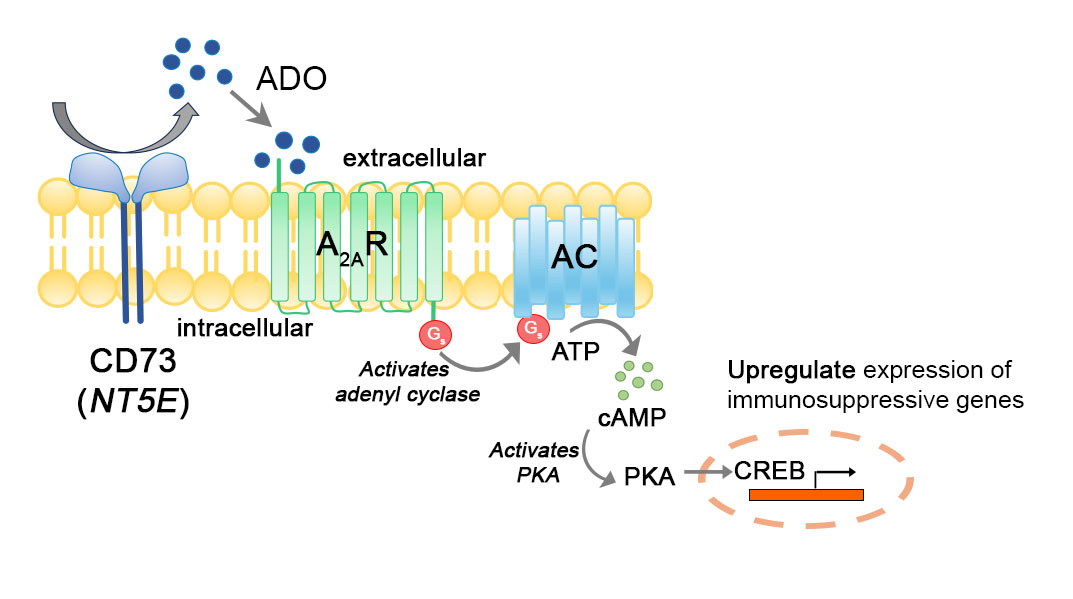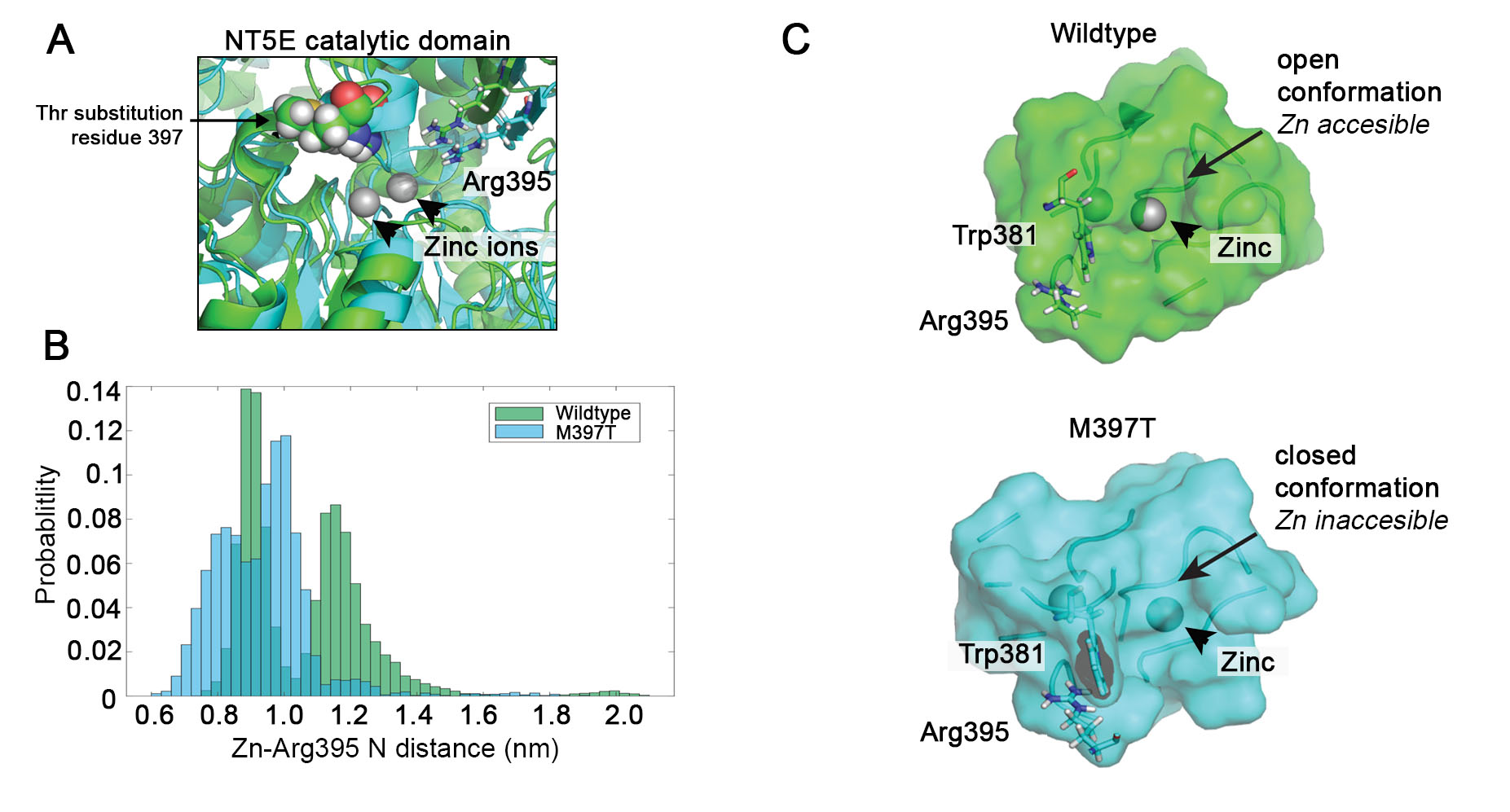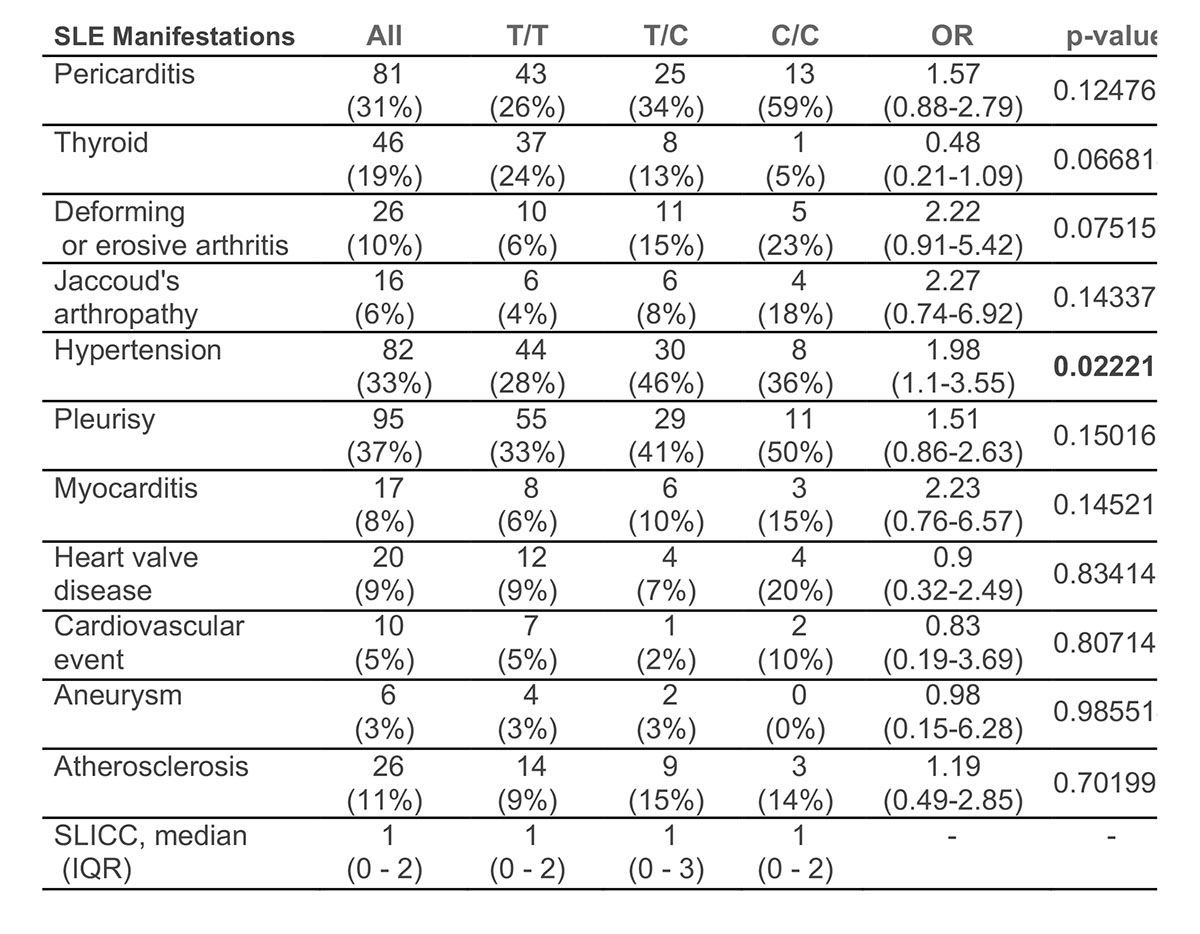Session Information
Session Type: Poster Session B
Session Time: 10:30AM-12:30PM
Background/Purpose: Adenosine is a purine nucleoside generated by the enzymatic activity of CD73/NT5E, that functions as an endogenous regulator of the immune system critical for the resolution of inflammation. Extracellular adenosine activates adenylyl cyclase to generate intracellular cyclic AMP (cAMP), a potent transcriptional regulator of the cAMP response element (CREB) involved in limiting the progression of inflammation (Figure 1). Genetic mutations in the coding sequence of NT5E that alter its enzymatic activity have been linked to clinical phenotypes in non-lupus patients and have more recently been detected in SLE GWAS. Although adenosine signaling normally functions to suppress immune activity and inflammation, relatively less is known about the role of adenosine-mediated regulation of inflammation in SLE.
Methods: GSVA was used to examine the enrichment of NT5E as well as gene signatures for adenosine processing/production (ADO signature) and function (CREB signature) in lupus tissue and whole blood (WB) datasets. Molecular modeling of the lupus-associated SNP rs2229524 encoding an M397T transition in NT5E, was used to assess the impact of this mutant on NT5E enzymatic function. Sequence analysis identified lupus patients harboring the rs2229524 risk alleles in RNA-seq data collated from multiple lupus WB datasets and examined for the enrichment of the ADO and CREB gene signatures. Finally, genotyping for rs2229524 was conducted on an independent patient cohort to assess the impact of the risk variant on SLE clinical manifestations.
Results: Gene expression analysis in SLE tissues revealed fundamental defects in the regulation of anti-inflammatory responses associated with altered adenosine activity. Examination of the structural implications of genetic mutations in the coding sequence of NT5E predicted impaired enzymatic function (Figure 2) that could be directly linked to elevated immune activity and proinflammatory markers. Analysis of an independent cohort of 267 SLE patients supported the increased expression of the risk allele (C vs T) in SLE patients and especially those of African Ancestry and also indicated that the presence of the NT5E risk allele was associated with a greater frequency of hypertension that could not be accounted for by ancestry (Table 1).
Conclusion: We applied a comprehensive systems biology approach to dissect the immunologic and genetic implications of altered adenosine signaling in SLE patients. The data presented show that while adenosine signaling is generally impaired among SLE patients, genetically-driven immunological changes linked to altered adenosine have a significant impact immune system function. This was indicated by the association of rs2229524 risk allele with decreased CD73 enzymatic activity and diminished anti-inflammatory regulation and suggested that NT5E risk variants further reduce the capacity for cAMP-mediated immunosuppression and increase the risk of hypertension in the SLE patient population.
To cite this abstract in AMA style:
Owen K, Peabody I, Olferiev M, Dawson T, Bachali P, Kasson P, Grammer A, Crow M, Lipsky P. Reduced Adenosine-Mediated Regulatory Activity Exacerbated by an NT5E Loss of Function Mutation Is Linked to Tissue Inflammation and Hypertension in Systemic Lupus Erythematosus [abstract]. Arthritis Rheumatol. 2024; 76 (suppl 9). https://acrabstracts.org/abstract/reduced-adenosine-mediated-regulatory-activity-exacerbated-by-an-nt5e-loss-of-function-mutation-is-linked-to-tissue-inflammation-and-hypertension-in-systemic-lupus-erythematosus/. Accessed .« Back to ACR Convergence 2024
ACR Meeting Abstracts - https://acrabstracts.org/abstract/reduced-adenosine-mediated-regulatory-activity-exacerbated-by-an-nt5e-loss-of-function-mutation-is-linked-to-tissue-inflammation-and-hypertension-in-systemic-lupus-erythematosus/



